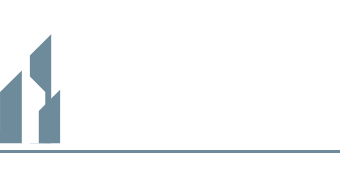The following op-ed, written by eight key industry association leaders (including ICBA President Chris Gardner), ran in the April 17, 2021, edition of The Vancouver Sun:
British Columbia has recently entered the third wave of the pandemic and, with rising cases and an increase in variants, there are significant health challenges, growing frustration and anxiety in addition to continued economic impacts on people and many business sectors.
For months, businesses and individuals have worked together to keep our families, friends and communities healthy through new public health guidelines and safety protocols, including making necessary investments required to do so. Most recently, businesses have rolled up their sleeves to support the vaccine rollout across the province. Pharmacies, remote work camps, and the new partnership that will re-deploy thousands of tourism and hospitability workers to directly support vaccination clinics are only a few examples. Together, we are showing how it can be done. We now need to apply this Team BC approach to ensure a safe economic recovery leads to a thriving future for all British Columbians.
The BC Government will unveil its 2021-22 budget on April 20th. As we begin the hard work to rebuild our economy, we need a post-pandemic vision for investment, jobs and opportunity – one that ensures that we are the best place to invest with competitive tax rates and low barriers to job-creating investments. We have some of the best talent in the world and, given the right conditions, our entrepreneurs will seize the opportunity to grow and innovate.
Early in the pandemic, through consultation and collaboration, the BC Government implemented several measures that provided a lifeline to many businesses, including some direct assistance and deferred or reduced property tax payments.
While critically needed, these measures have not been able to save all businesses. Data prior to the latest “circuit breaker” showed BC has recovered its pre-pandemic employment, although Statistics Canada still shows 2,300 fewer businesses operating across British Columbia. The pandemic has hit business owners and their employees hard with lost promise and jobs that in some cases will never come back.
Estimates for the real GDP show between a 5 and 6 per cent decline for 2020, which would be one of the worst declines experienced in BC’s history. It is expected that the provincial economy will rebound and expand by more than 5% this year followed by a similar performance in 2022, as it seeks to make up the ground lost due to the pandemic.
Sectors such as tourism, hospitality, events, sports, leisure and entertainment have been disproportionally impacted since the beginning of the crisis and many businesses couldn’t survive despite government support. These sectors are again suffering more than others due to the new health orders and restrictions and will need additional support. Even as the vaccine rolls out, it is critical that work on a safe restart begins now in earnest to ensure that when it is safe to do so that these sectors are not left behind.
At the same time, the COVID-19 crisis has accelerated trends including AI and mass digitization, the reordering of global supply chains and trade, a heightened focus on the importance of ESG and a doubling down on working together to tackle climate change, to name a few. If there was ever a time that our province and our country needed governments at all levels to address both the challenges and opportunities these represent it’s now. Fresh thinking, new ideas, and smart policies to supercharge our economy are needed in the wake of the greatest health and financial crisis to grip the world in over a hundred years.
The vaccine rollout is good news, but it will take several more months until we see the full impact. While that happens, the economic challenges continue. We must act with the same urgency and collaborative “Team BC” approach which helped at the beginning of the pandemic to minimize the economic devastation for communities, young people, individuals, and families around British Columbia.
With Budget 2021-22 the BC Government can address the immediate needs of businesses and employers that are suffering and start to build a stronger tomorrow. Finance, tax and regulatory reform is needed and must support and encourage economic activity and growth instead of deterring it. We need to welcome job-creating investment and continue to produce the goods and services the world needs in recovery. Many businesses and governments alike have experienced dramatic revenue losses and accumulated substantial amounts of new debt that will eventually need to be repaid by future generations. Meanwhile, certain sectors, and BC’s resource industries in particular, have largely been able to keep operating and people working across the province for much of this difficult period. Supporting and growing our resource sectors will remain fundamental to the road to recovery ahead.
Governments must resist the temptation to increase taxes or fees which deter investment, and instead focus on a plan to support sustainable economic growth and revenue for government. British Columbia can be a destination for low carbon and digitally driven companies and services at a time when the world is competing for private sector investment, talent and vital recovery dollars.
Lessons from the pandemic show that it is imperative to act together quickly and boldly to build a more prosperous and equitable future. Let’s get building with all the abundant ingredients BC has to offer.
Bridgitte Anderson
President and CEO, Greater Vancouver Board of Trade
Bryan Cox
President and CEO, Canadian LNG Alliance
Greg D’Avignon
President and CEO, Business Council of BC
Fiona Famulak
President and CEO, BC Chamber of Commerce
Chris Gardner
President, Independent Contractors and Businesses Association (ICBA)
Michael Goehring
President and CEO, Mining Association of BC
Samantha Howard
Director, Provincial Affairs, BC, Canadian Federation of Independent Business
Susan Yurkovich
President and CEO, Council of Forest Industries





